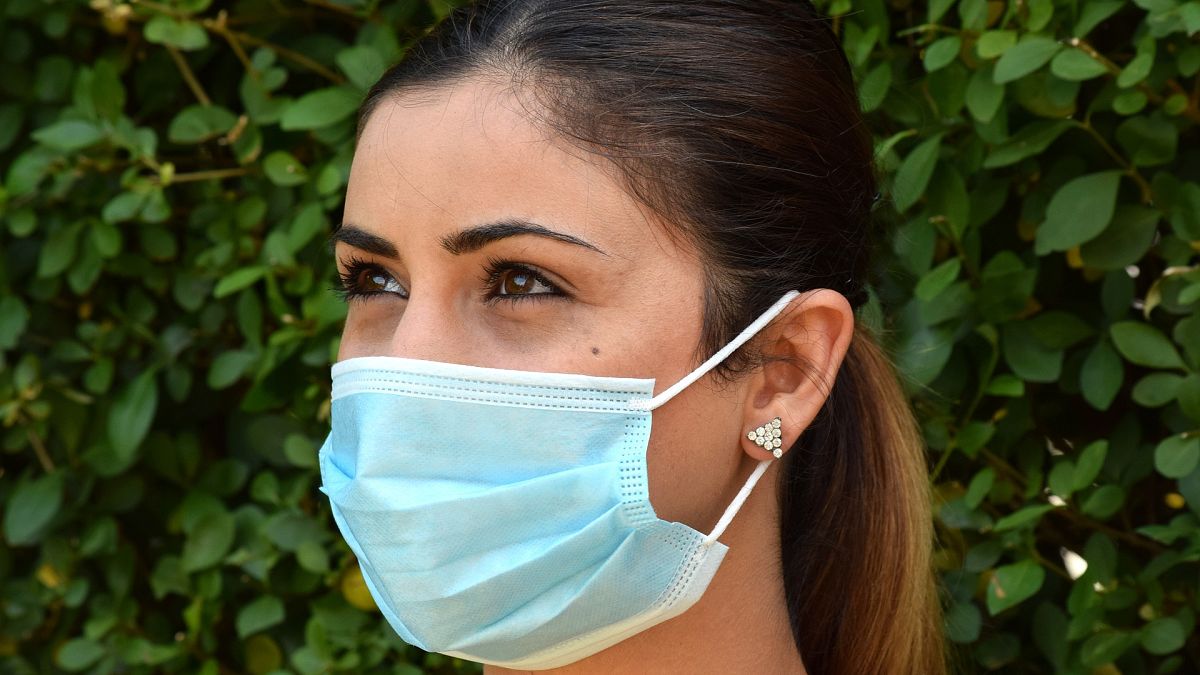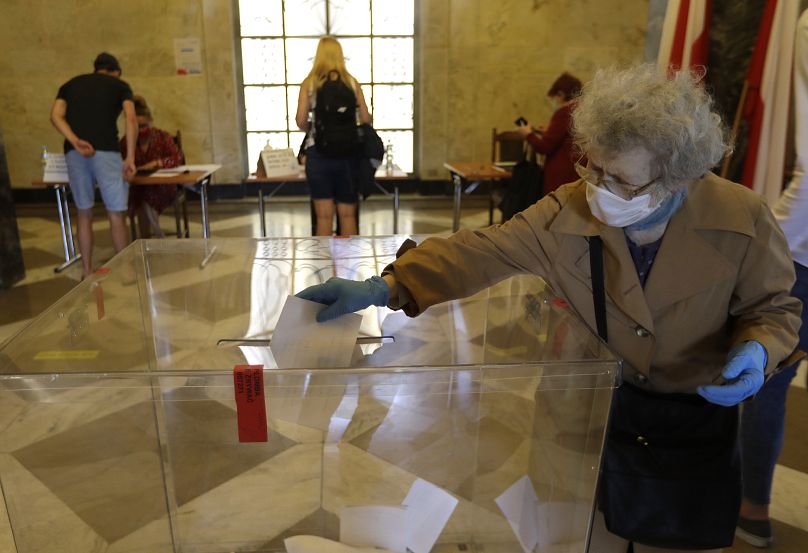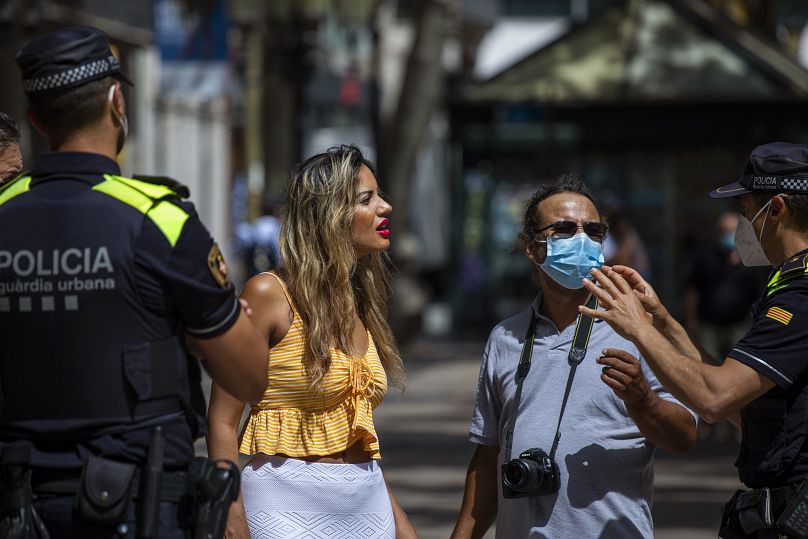Policy on mask-wearing across the continent has been as varied as different governments' approaches to social distancing, lockdown and other preventive measures.
Discussions over when and where to wear face masks, if at all, have split opinions throughout the coronavirus pandemic and their use has shown Europe's fractured approach to the crisis.
The World Health Organization changed its advice last month, saying masks or homemade cloth face coverings should be worn in public where social distancing is not possible to reduce the spread of coronavirus droplets.
It previously argued there was not enough scientific evidence to back up their use by healthy people.
Policy on mask-wearing across the continent has been as varied as different governments' approaches to social distancing, lockdown and other preventive measures.
This ranged from the Czech Republic, Slovakia and Bosnia and Herzegovina which introduced mandatory face-covering early on, to the UK whose government urged the public not to wear clinical medical-grade face masks (PPE) in order to ensure enough supplies for healthcare workers.
The attitudes of citizens when it came to whether they chose to wear a mask have also evolved differently across Europe as the pandemic progressed.
Here we take a pan-European look the state of affairs.
Changing attitudes show north-south divide
Data on the overall attitudes to mask-wearing of people in European countries showed a clear north-south split.
YouGov and the Institute of Global Health Innovation (IGHI) at Imperial College London is gathering data on behaviour and attitudes to COVID-19 from 29 countries, interviewing around 21,000 people each week.
Nordic countries including Finland, Sweden and Denmark said they were unlikely to wear a mask when out in public with their opinions remaining largely unchanged, according to the survey results.
Whereas some in Western Europe — including the inhabitants of France, Germany, Spain and Italy — were less likely to wear masks in public at the start of the pandemic, reports of mask use soared in mid-May when lockdowns were introduced.
In some cases, like that of Italy and Spain, the number of people who said they were wearing the face coverings in public rose to over 80% last week, contrary to the Nordic countries where the latest survey responses show rates at below 10%.
The UK is an outlier in terms of its inhabitants' responses, with reported use increasing gradually from near 0% when the pandemic first reared its head in Europe to just below 40% last week -- it never saw a spike in mask wearing like the countries on the continent.
Government reaction and public opinion to face covering
The Czech Republic and Slovakia were the first European countries to make wearing masks mandatory in supermarkets, pharmacies, and on public transport on March 18 and 25 respectively.
Bosnia reacted shortly after on March 29, obliging its citizens to wear a mask or a cloth covering their mouth and nose while walking in the street or outside their homes.
Other authorities across the continent have since introduced rules with varying degrees of severity.
On the more severe end of the scale, Chancellor Sebastian Kurz asked the people of Austria to make a "big adjustment" when he said mask-wearing was compulsory in all public spaces, later relaxing the rules.
In Poland similar rules, obliging people to cover their nose and mouths in public were put in place, but eased at the end of May saying masks were not necessary in outdoor spaces where a two-metre social distance was maintained.
Face masks are mandatory on public transport in France and French President Emmanuel Macron said on Tuesday during a television interview that he would like to make masks mandatory in indoor public spaces from August 1 due to "weaknesses" in preventive measures.
Despite the current rules in France being some of the less draconian, the measure has not been without incident — thousands of people turned out to participate in a silent march over the weekend in the southwestern city of Bayonne where a bus driver died from injuries sustained in an attack by passengers who reportedly refused to wear face masks.
Masks are also compulsory on public transport in England, Scotland and Northern Ireland and face covering is to become mandatory in English supermarkets from July 24, bringing it in line with Scotland.
The UK has seen a fragmented approach between its four countries to COVID measures, specifically the easing of lockdowns, and each nation's stance on face masks has been no different.
In Spain, the question of mask-wearing is divisive and sensitive given how hard-hit the country was and the recent rise of new cases.
Perhaps an indicator of public tension over the issue was the cancellation of former reality TV contestant and singer Omar Monte's concert in Fuengirola when it was reported he had not worn a mask at a prior charity event.
Authorities have made it compulsory for everyone older than six to wear masks in indoor public spaces, and outdoor ones when it is impossible to keep more than two metres apart.
Catalonia and more recently Aragon, La Rioja, Extremadura, Navarra, and Murcia, including the Balearic Islands, moved to introduce mandatory mask-wearing, no matter what distance people were from each other.
Like other coronavirus prevention matters, the introduction of face-covering measures has varied dramatically from one European government to another, as has the public's rigour in following the rules.
Face masks have divided both legislation and opinion in Europe.
Have you been got a story you want to share about mask-wearing or the coronavirus pandemic? You can get in touch with emma.beswick@euronews.com


